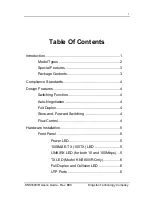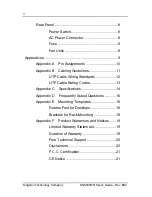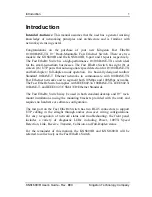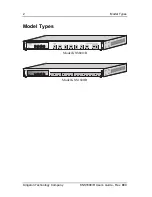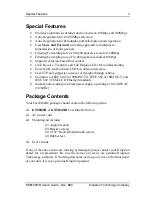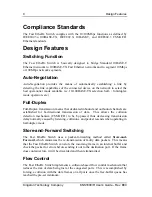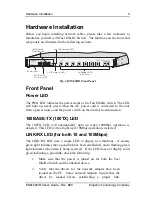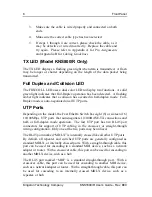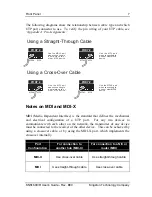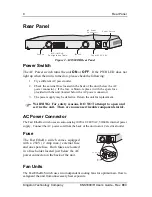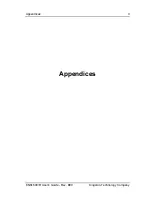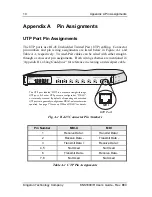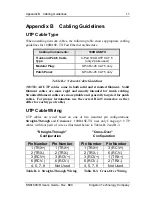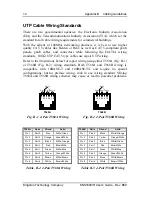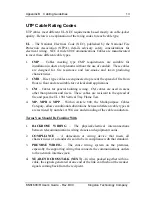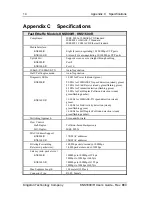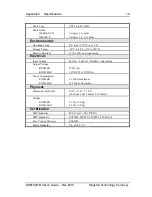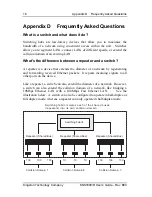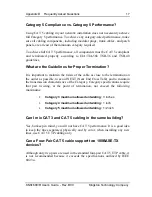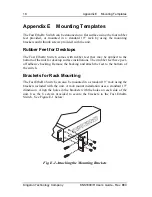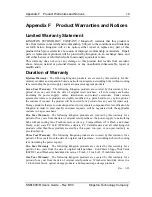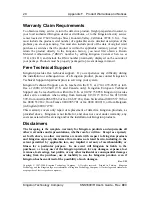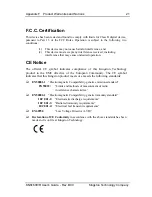
Appendix B Cabling Guidelines
13
KNS1600/R User’s Guide - Rev. B00 Kingston Technology Company
UTP Cable Rating Codes
UTP cables meet different UL-NEC requirements based mostly on cable-jacket
quality. Below is an explanation of the rating codes for each cable type.
UL – The National Electrical Code (NEC), published by the National Fire
Protection Association (NFPA), details advisory safety considerations for
electrical wiring. NEC Article 800 Communications Cables are manufactured
to meet these different cable types.
1.
CMP – Cables meeting type CMP requirements are suitable for
installation in ducts and plenums without the use of conduit. These cables
are designed for fire resistance and low-smoke and toxin producing
characteristics.
2.
CMR – Riser type cables are engineered to prevent the spread of fire from
floor to floor and are suitable for vertical shaft applications.
3.
CM – Cables for general building wiring. CM cables are used in areas
other than plenums and risers. These cables are resistant to the spread of
fire and pass the UL 1581Vertical Tray Flame Test.
4.
MP, MPR & MPP – Within Article 800, the Multi-purpose Cables
Category, allows conditional substitutions between different cable types &
are restricted by number, AWG size and stranding of the cable conductors.
Terms You Should Be Familiar With
1.
BACKBONE WIRING – The physical/electrical interconnections
between telecommunications wiring closets and equipment rooms.
2.
COMPLIANCE – A datacomm or wiring device that meets all
characteristics of a standard is said to be in compliance with that standard.
3.
PREMISE WIRING – The entire wiring system on the premises,
especially the supporting wiring that connects the communications outlets
to the network interface jack.
PJ
NEAR-END CROSSTALK (NEXT) – In wires packed together within a
cable, the signals generated at one end of the link can flush out the weaker
signals coming back from the recipient.

